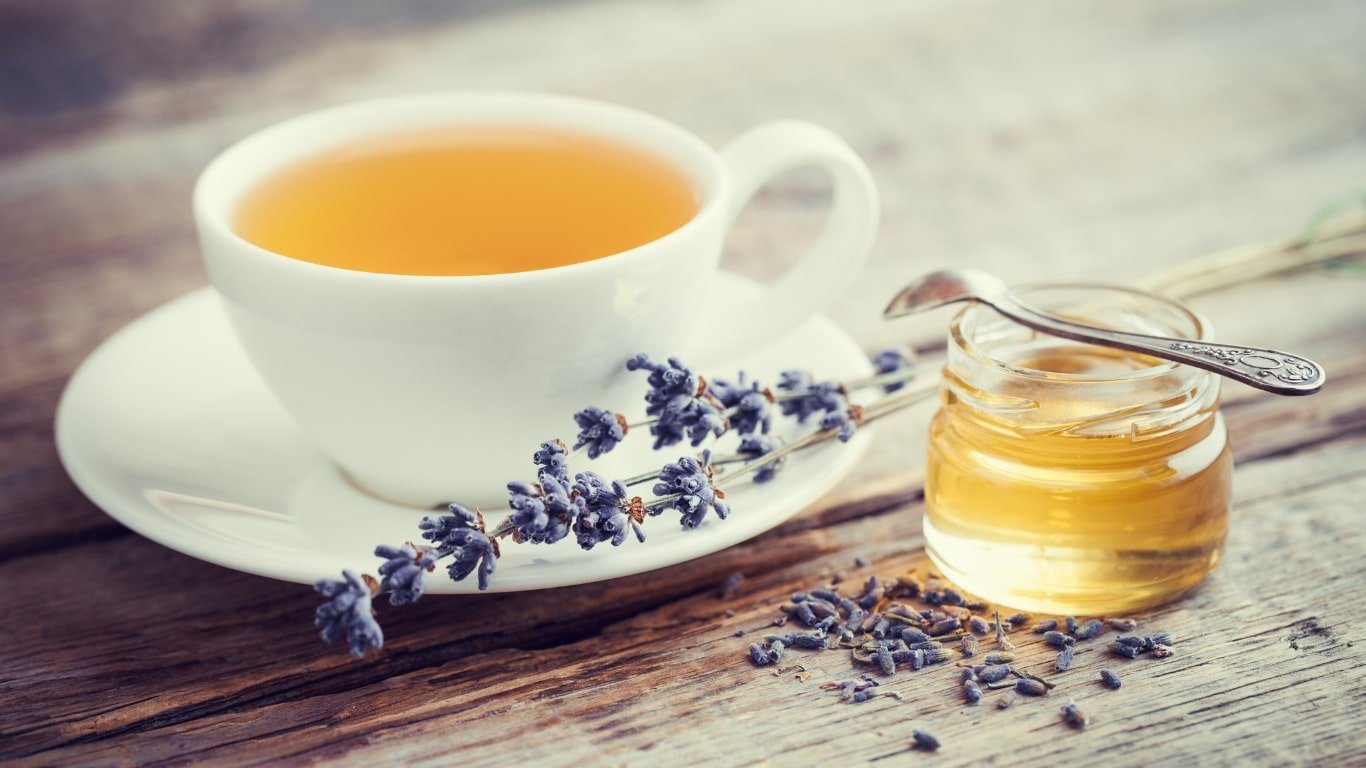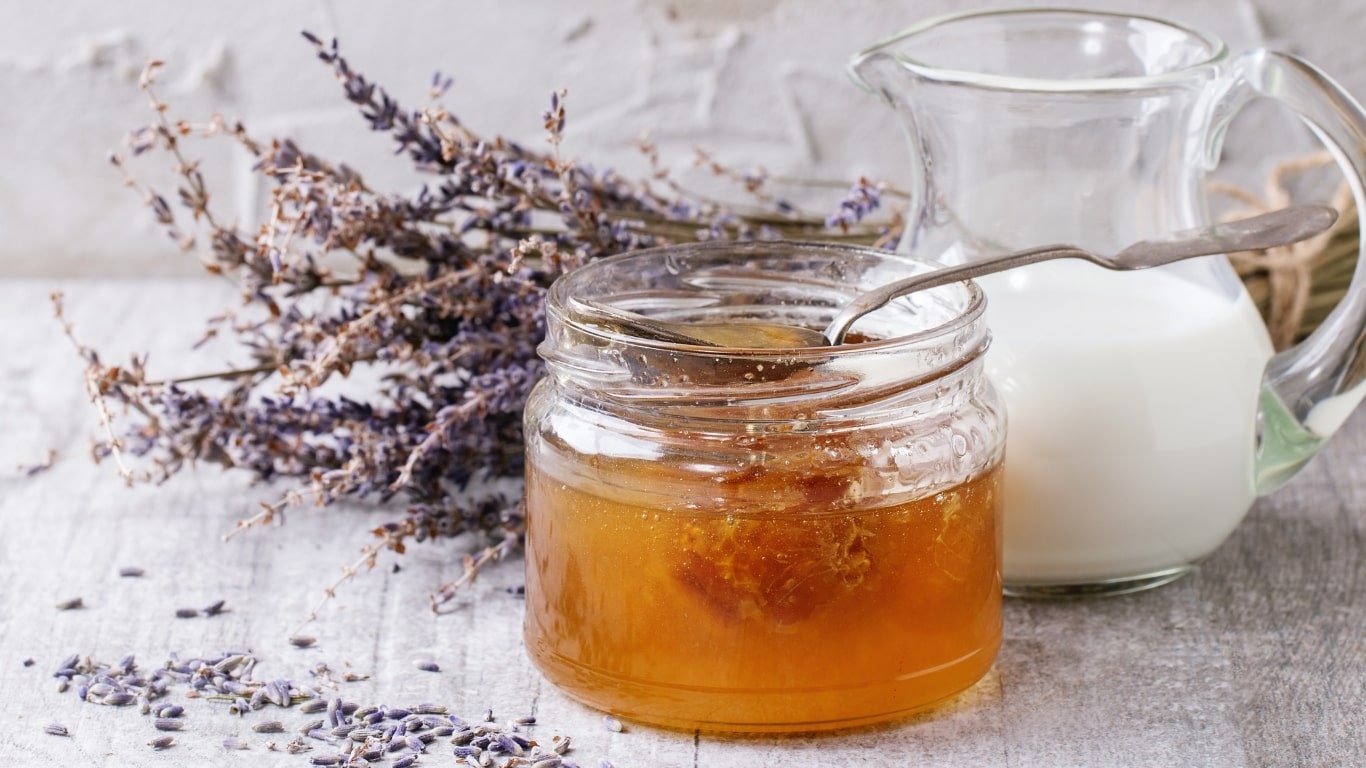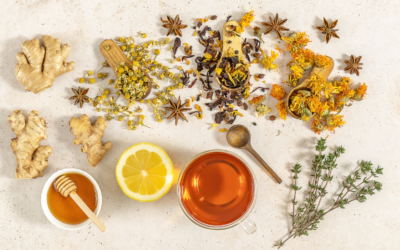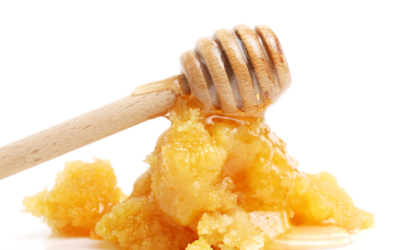
Introduction
Lavender honey is a rare and precious variety of honey that captivates the senses with its unique flavor and fragrance. Unlike regular honey, which is derived from the nectar of various flowers, lavender honey is produced by bees that primarily forage on lavender plants. This results in a honey that not only tastes delightful but also carries the aromatic qualities of lavender. Renowned for its culinary versatility and therapeutic benefits, lavender honey has been treasured for centuries in various cultures.
The Origins of Lavender Honey
Lavender honey originates primarily from regions where lavender is abundantly grown, such as Provence in France, parts of Spain, and Italy. The Mediterranean climate, with its warm, dry summers and mild winters, provides the perfect conditions for lavender cultivation. In these regions, lavender fields stretch as far as the eye can see, creating a stunning purple landscape that is as beautiful as it is beneficial to the local bee population.
The process of producing lavender honey begins with the careful selection of hives placed in or near these lavender fields. Bees collect nectar from the lavender flowers, and through their natural processes, transform it into honey. The resulting product is typically harvested in late summer, after the peak blooming period of lavender, ensuring that the honey has absorbed the full essence of the flowers.
The Unique Characteristics of Lavender Honey
Lavender honey is easily distinguishable from other types of honey by its light color, which can range from pale yellow to a slightly amber hue. Its texture is usually smooth and creamy, although it may crystallize over time due to its natural sugar content.
The flavor profile of lavender honey is one of its most remarkable qualities. It combines the sweetness of honey with the floral, slightly herbal notes of lavender. This subtle yet distinctive taste makes lavender honey a versatile ingredient in both sweet and savory dishes. The aroma is equally enchanting, carrying the soothing scent of lavender that can evoke a sense of calm and relaxation.
Culinary Uses of Lavender Honey

Lavender honey’s delicate flavor and aromatic qualities make it a favorite among chefs and home cooks alike. Its versatility in the kitchen is unmatched, and it can be used in a wide range of culinary applications:
- Sweeteners in Beverages: Lavender honey is a popular choice for sweetening tea, particularly herbal and green teas. It adds a floral note that enhances the overall flavor of the beverage without overpowering it. Additionally, it can be used in coffee, smoothies, and even cocktails to impart a subtle sweetness and aroma.
- Baking and Desserts: The unique flavor of lavender honey pairs well with various baked goods, such as scones, muffins, and cakes. It can be drizzled over pastries or incorporated into recipes for an added layer of complexity. Lavender honey is also an excellent topping for yogurt, ice cream, and panna cotta, where its floral notes can shine.
- Glazes and Marinades: Lavender honey’s sweet and aromatic profile makes it a perfect ingredient for glazes and marinades, particularly for poultry, pork, and lamb. It can be combined with herbs like rosemary and thyme to create a fragrant glaze that enhances the natural flavors of the meat.
- Cheese Pairing: One of the most delightful ways to enjoy lavender honey is by pairing it with cheese. It complements both soft cheeses, such as Brie or Camembert, and hard cheeses like Manchego or Pecorino. The sweetness of the honey balances the saltiness of the cheese, while the lavender notes add an intriguing flavor twist.
- Salad Dressings: Lavender honey can be used to create unique salad dressings. When combined with olive oil, vinegar, and a touch of mustard, it forms a vinaigrette that adds a floral sweetness to fresh greens and fruits.
Medicinal and Therapeutic Benefits
Beyond its culinary uses, lavender honey is celebrated for its medicinal properties. Lavender itself has long been used in traditional medicine for its calming and healing effects, and these properties are transferred to the honey produced from its nectar.
- Antioxidant Properties: Lavender honey is rich in antioxidants, which are compounds that help protect the body from oxidative stress and inflammation. These antioxidants can neutralize free radicals, potentially reducing the risk of chronic diseases such as heart disease and cancer.
- Wound Healing: Honey has been used for centuries as a natural remedy for wounds and burns due to its antibacterial and anti-inflammatory properties. Lavender honey, with its additional calming effects, is particularly effective in soothing irritated skin and promoting faster healing.
- Digestive Health: Consuming lavender honey can aid in digestion and alleviate digestive issues such as bloating and indigestion. It acts as a prebiotic, supporting the growth of beneficial bacteria in the gut, which is essential for a healthy digestive system.
- Respiratory Relief: Lavender honey can be used to soothe a sore throat and alleviate symptoms of respiratory conditions such as colds, coughs, and bronchitis. Its natural antibacterial properties can help fight infections, while its soothing texture coats the throat, providing relief from irritation.
- Stress and Anxiety Reduction: Lavender is well-known for its calming effects on the mind and body, and lavender honey can help reduce stress and anxiety when consumed regularly. It can be added to herbal teas such as chamomile or valerian root, enhancing their natural calming effects.
- Sleep Aid: The calming properties of lavender honey make it an effective natural remedy for insomnia and sleep disturbances. Consuming a small amount before bedtime, either on its own or in a warm beverage, can promote relaxation and improve sleep quality.
Choosing and Storing Lavender Honey
When selecting lavender honey, it is essential to choose a high-quality product to ensure you receive the full benefits of this unique honey. Look for honey that is labeled as pure lavender honey, indicating that the bees primarily foraged on lavender flowers. Organic varieties are also available and may offer additional health benefits due to the absence of pesticides and other chemicals.
Lavender honey should be stored in a cool, dark place away from direct sunlight. It can crystallize over time, but this is a natural process that does not affect the honey’s quality. If crystallization occurs, simply place the jar in warm water and stir until the honey returns to its liquid state.
Frequently Asked Questions
What is honey lavender good for?
Lavender honey is known for its soothing and therapeutic properties, making it beneficial for a variety of uses. It can help in relieving stress and anxiety, promoting better digestion, and boosting immune function due to its antioxidant and antibacterial qualities. Additionally, lavender honey is used in skincare for wound healing and soothing irritated skin, while its calming effects make it a popular natural remedy for respiratory issues and sleep disturbances.
Does lavender honey taste like lavender?
Yes, lavender honey has a distinct taste that reflects the floral and herbal notes of lavender. While it retains the natural sweetness of honey, the flavor is subtly infused with the aromatic essence of lavender, offering a delicate, floral taste that sets it apart from other types of honey. This unique combination of sweetness and floral undertones makes lavender honey a versatile ingredient in both sweet and savory dishes.
Is lavender honey good for sleep?
Lavender honey is indeed good for sleep, thanks to its natural calming properties. The soothing effects of lavender, combined with the gentle sweetness of honey, can help relax the mind and body, making it easier to fall asleep. Consuming a small amount of lavender honey before bed, whether on its own or in a warm beverage like tea, can promote relaxation and improve the quality of sleep.
Is lavender honey raw?
Lavender honey can be found in both raw and processed forms, depending on how it is harvested and prepared. Raw lavender honey is unprocessed and unheated, retaining all of its natural enzymes, antioxidants, and nutrients. This raw form is often preferred for its potential health benefits and richer flavor. However, processed lavender honey may have undergone pasteurization or filtration, which can alter its texture and some of its beneficial properties.
Conclusion
Lavender honey is a remarkable product that combines the best of nature’s flavors and healing properties. Whether used in the kitchen to enhance dishes with its unique floral notes or as a natural remedy for various ailments, lavender honey offers a wide range of benefits that make it a valuable addition to any pantry. Its delicate balance of sweetness and aromatic qualities, coupled with its therapeutic effects, make it a true culinary and medicinal marvel.



